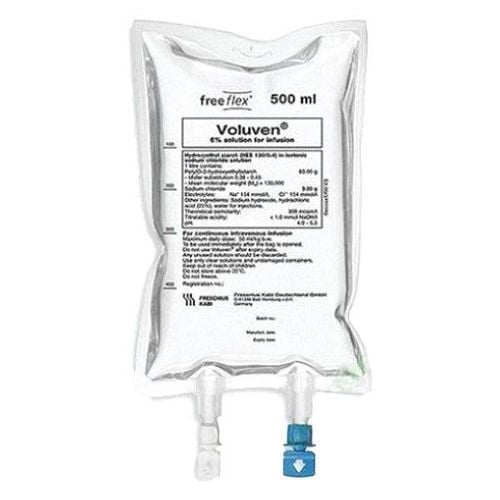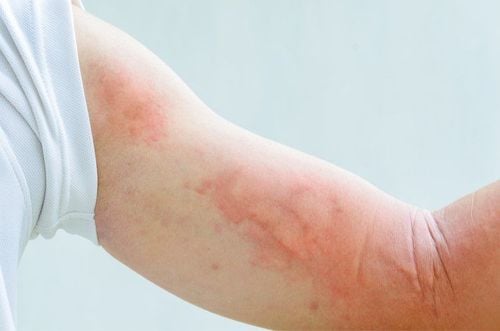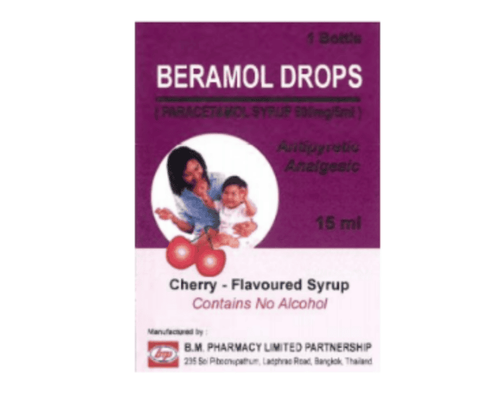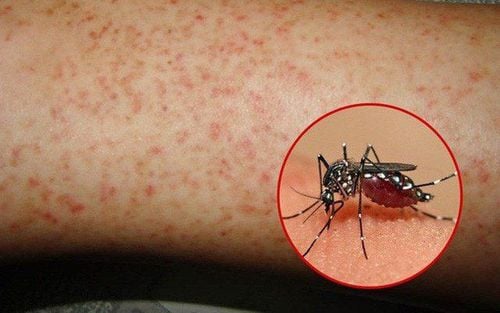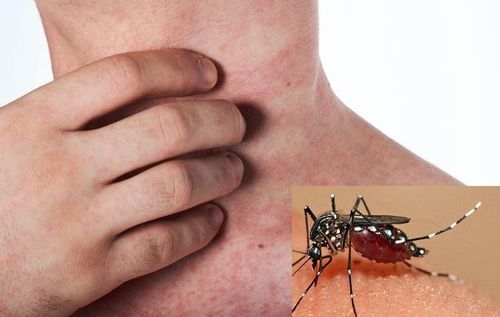This is an automatically translated article.
The article is professionally consulted by Master. Doctor Nguyen Thi Nhat - Doctor of Infectious Diseases, Department of Medical Examination & Internal Medicine - Vinmec Hai Phong International General Hospital.The beginning of the rainy season is the time when dengue fever spreads quickly and is easy to break out into an epidemic. When infected with dengue fever, the patient can self-treat and rest at home, but if there are signs such as bleeding gums, vomiting blood, black stools, etc., the patient should immediately go to the hospital. because those are the warning signs of severe dengue fever.
1. What is Dengue fever?
Dengue fever is a very common infectious disease in our country, caused by the Dengue virus. There are four types of dengue virus: DEN-1, DEN-2, DEN-3, and DEN-4. The disease does not create a cross-immune response, so a person can get dengue up to 4 times in his life, the next time is usually worse than the last because the body has antibodies of many types of dengue virus coexisting. .
Dengue fever usually lasts 7-10 days and is quite complicated. Patients can only have high fever, fatigue, muscle aches to more severe signs such as severe vomiting, bleeding gums, bloody urine, black stools, ...
2. Severe signs of dengue fever
After about 4-7 days after being bitten by a mosquito carrying the dengue virus, the patient may have the following symptoms:Sudden high fever Fatigue, muscle and joint pain. Severe headache, pain in both eye sockets

At this stage, the patient should pay attention to the severe signs of the disease and go to the doctor immediately if there are severe signs of dengue fever as follows:
Mucous membrane bleeding: Nosebleeds, bleeding legs teeth, bloody urine or prolonged menstrual period, abnormal vaginal bleeding Visceral bleeding with manifestations such as vomiting a lot, vomiting blood, pain in the liver or epigastric region, black stools, objects palpitations, cold hands and feet, ... and in more severe cases, brain hemorrhage, if not treated promptly, can easily lead to death. pleural, peritoneal effusion and can lead to shock, low blood pressure, cardiovascular collapse When dengue fever bleeding gums as well as the above signs, the patient should immediately go to medical facilities for treatment. timely care and treatment.
3. How to prevent and treat dengue fever?
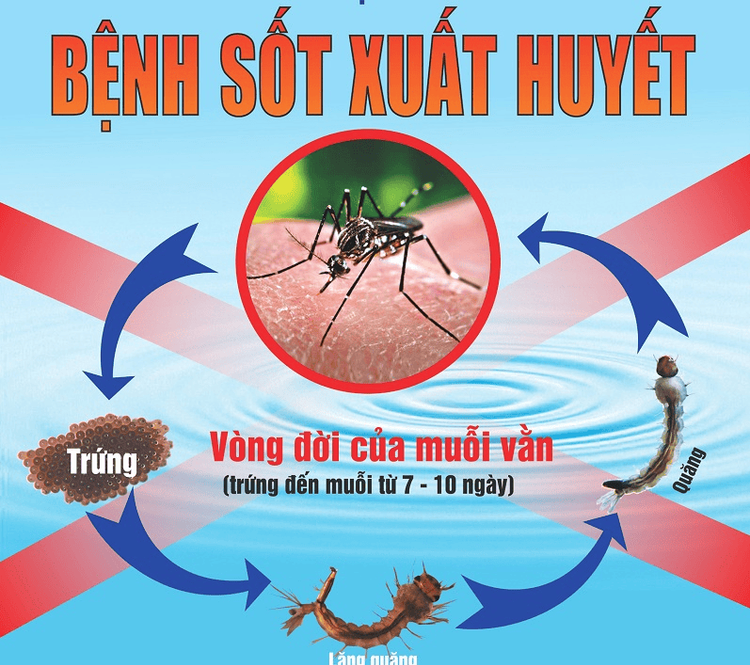
Treatment of dengue fever
Currently, there is no specific medicine to treat dengue fever, mainly treating symptoms and preventing complications caused by the disease. When having mild dengue fever, the patient can rest and treat at home and should strictly follow the doctor's instructions:
Rest, relax, sleep under a mosquito net to avoid spreading the disease. When fever is over 39oC, loosen clothes and cool with warm water, take paracetamol fever reducer, normal dose of paracetamol is 10-15mg/kg/time, take 4-6 hours apart, total dose of paracetamol should not exceed 60mg /kg body weight/24 hours. Absolutely do not use ibuprofen, aspirin to reduce fever because it will increase the risk of bleeding. Eat soft, thin, easy-to-digest foods such as porridge and soup. Drink a lot of water, should be rehydrated with oresol, fruit juice,... Do not use antibiotics because the disease is caused by dengue virus, and antibiotics only work for bacterial infections. Dengue fever prevention
Clearing bushes, cleaning drains, stagnant water ponds, killing larva. Spray insecticide in the house and surroundings. Sleep under a mosquito net, and use mosquito repellent creams or oils. Supplement with vitamin C to strengthen resistance when in contact with sick people. Relatives and patients need to pay attention to the signs of dengue fever. When there are signs of illness, it is necessary to bring the patient to a medical facility immediately for timely treatment.
Please dial HOTLINE for more information or register for an appointment HERE. Download MyVinmec app to make appointments faster and to manage your bookings easily.





